Eva Longoria on defying the odds as a filmmaker and fiercely advocating for Latinos in Hollywood
Eva Longoria is one of USA TODAY’s Women of the Year, a recognition of women who have made a significant impact in their communities and across the country. Meet this year's honorees at womenoftheyear.usatoday.com.
Eva Longoria knows more career-defining moments are on the horizon.
Still, she looks back at her beginnings in Hollywood fondly. Displayed prominently before walking out the door of the director's Beverly Hills home is a massive framed photograph from a scene of the pilot episode of "Desperate Housewives." It's a snapshot of the charming yet superficial character Gabrielle Solis casually mowing the lawn late at night in high heels and donning a glamorous rose-colored gown.
Over a decade after the "Housewives" chapter came to a close, the mementos look a little different.
Longoria now boasts Critics Choice Awards, SXSW and Palm Springs International Film Festival honors, and Imagen Foundation Awards for her first feature film gig in the director's chair for "Flamin' Hot" (2023), a biopic depicting a Mexican American janitor's rise to the top of corporate America. (And Diane Warren, who penned the film's "The Fire Inside" sung by Becky G, nabbed a 2024 Oscar nomination for best original song.)
"Anytime you honor the film, you're honoring my community, you're honoring everybody I hired behind the camera and in front of the camera," Longoria says. "I like to say I don't care about awards, but I do in the fact that you're honoring so many people every time we receive some sort of recognition."
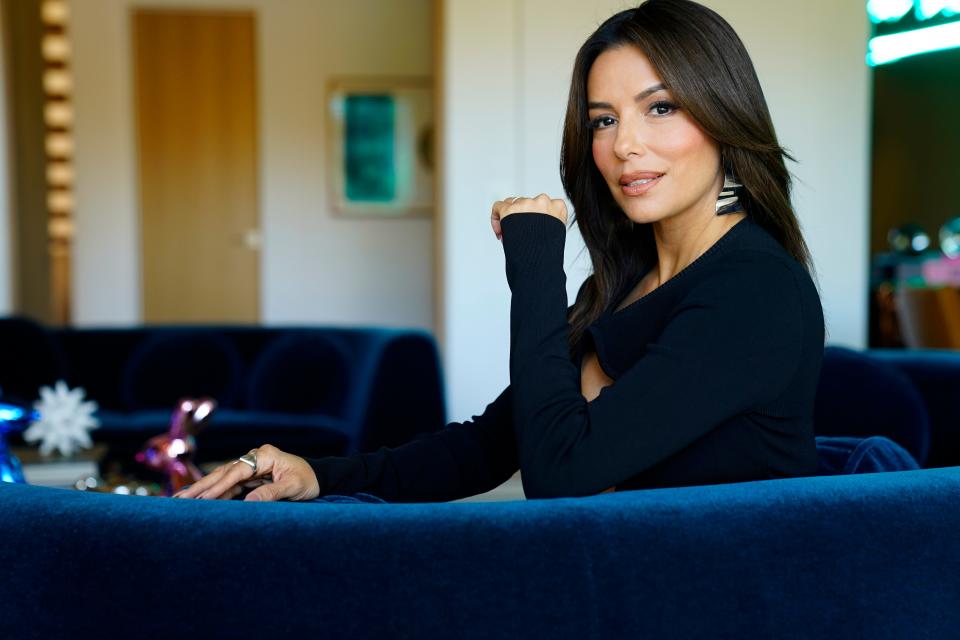
Longoria, who will pivot back to acting for the upcoming Apple TV+ show "Land of Women," is a fierce advocate for opening the doors to new Latino talent, and defying the odds when it comes to what a Latina filmmaker in Hollywood can do.
"We're just infiltrating all genres, it's important because that's the reality of the world we live in. We don't live in wall-to-wall Latinos. We don't live in wall-to-wall whiteness. We really live in not only a country but a world that is so diverse," Longoria says. "And so, to see that reflected back on screen is very satisfying."
This conversation has been edited for length and clarity.
What has been the proudest moment of your career so far?
Directing "Flamin' Hot" has been one of the proudest moments of my career. Richard Monta?ez's story was so beautiful to tell, and to have the honor of telling it was a huge responsibility.
And also, understanding the opportunity I was given to make a movie like this by a major studio. I felt the pressure of not getting it wrong, with zero room for error, and authenticity being my North Star which meant hiring almost an entire Latino crew. All of those things mattered because we don't get these opportunities often.
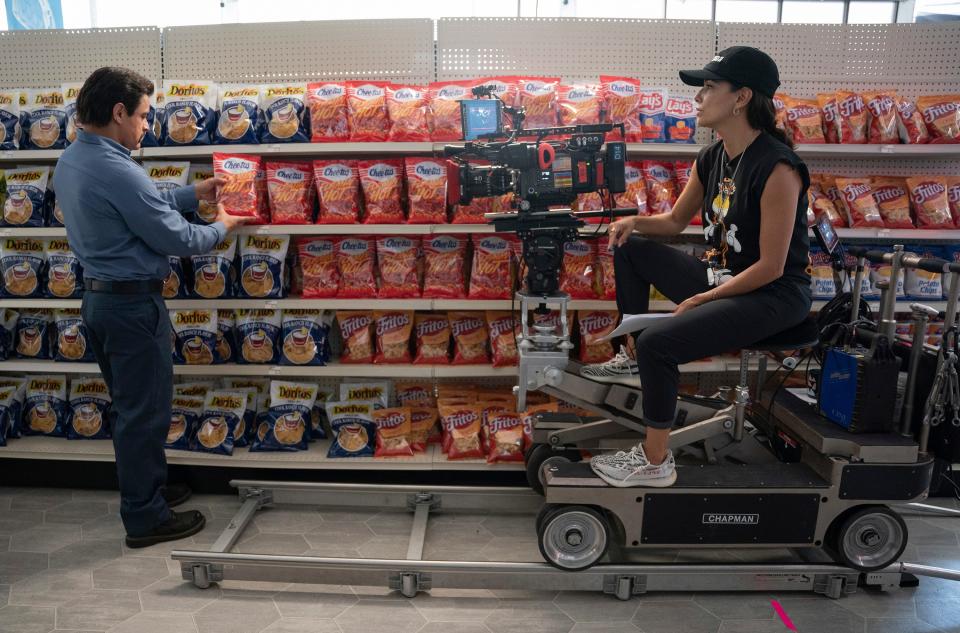
The last film by an American-born Latina, by a major studio, was over 20 years ago. We can't get a film every 20 years. So I felt that pressure to get it right, because if I didn't get it right, studios would go like, "Oh, we tried that thing one time, that Latin story with that Latina director. It didn't work."
Is there a guiding principle or mantra that you live by?
I live by so many mantras; they change daily depending on my mood.
But one life rule I live by is the quote by Maya Angelou, "I've learned that people will forget what you said, people will forget what you did, but people will never forget how you made them feel." That moment of interaction with anybody, whether it's a fan, a crew member, an actor, or a politician – I want that interaction to land with them in their hearts. I want to make a heart print on them to go, "I remember her and it felt right. It felt lovely, it felt joyous."
How do you define courage?
Courage is defined in many, many ways, and it's a very personal thing. For me, it's any time somebody is exposing themselves and being vulnerable.
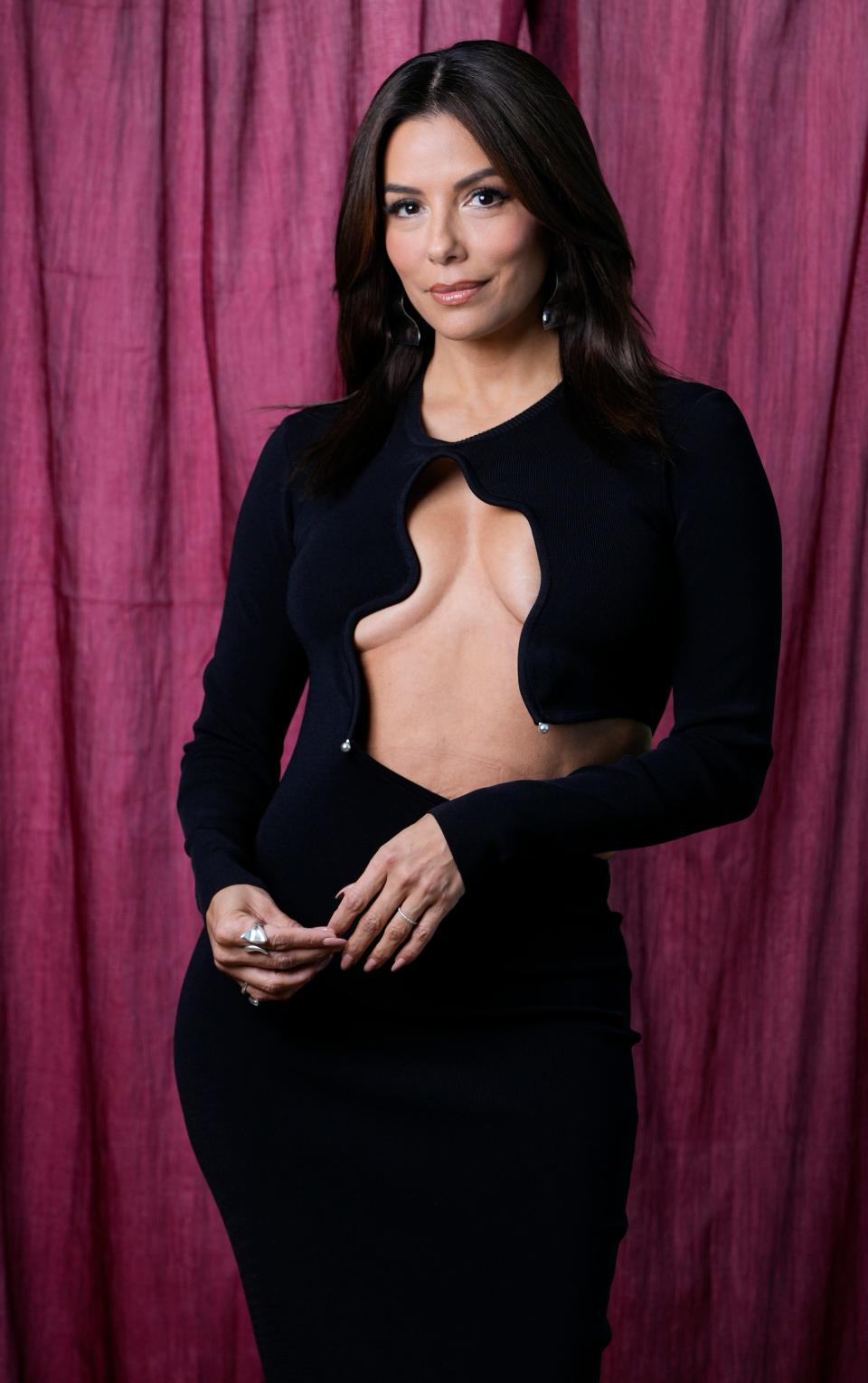
Even me directing "Flamin’ Hot," I put everything into it and when I was finished, I remember they were like, "OK, we're going to do a critics review." I was like, "Oh, I forgot. People will judge this." That's an extremely vulnerable position to be in. Talking about your political opinion, that's an extremely vulnerable position. Writing a memoir, as so many people did this year, is terrifying to me. To expose your life and tell your life story and put it out in the world, you know, people will have opinions on it.
There are so many ways you can be courageous and to each their own, and I think right now, the most courageous thing I'm doing is directing. Taking the chance, telling our stories, and putting them out there for the world to have an opinion on and to judge is so scary but at the same time, needed. It's so needed for people to see a different perspective of life and for people to go, "Oh yeah, I never thought of it that way."
Can you think back to a moment where you felt the most courageous?
It's a very scary time, particularly now, to be a political activist. I've always been politically active, and I've always been an advocate for my community. I've never spoken for the Latino community. I encourage the Latino community to speak for themselves, whether it's voting or getting educated on the candidates or the issues of our community.
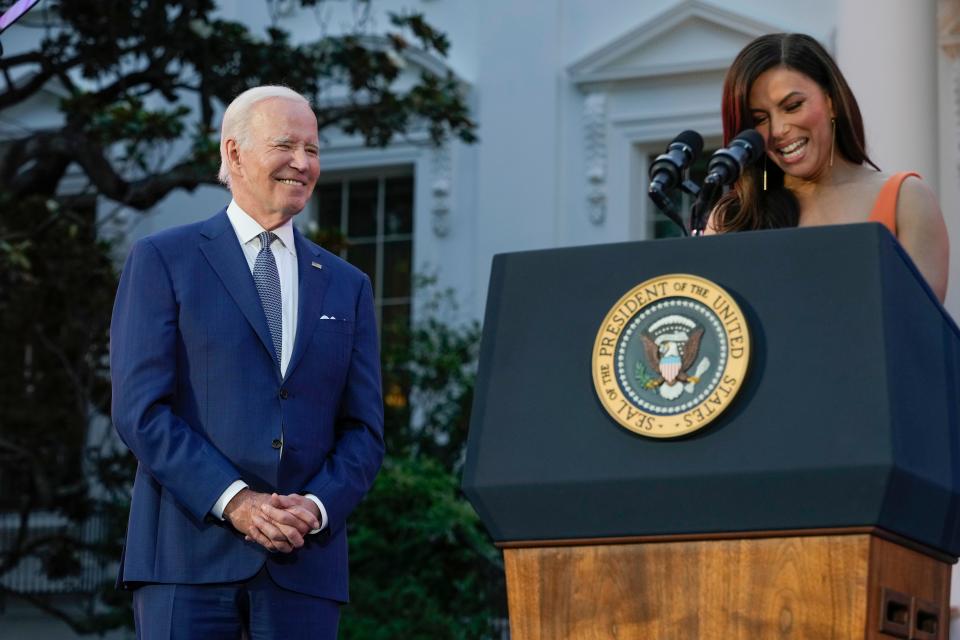
Today, with cancel culture and these divisive ideologies in our country, it's harder – or scarier, rather – to be out in front with your views and your opinions. Still, I'm most proud of the advocacy that I've done for women, for Latinos, for the disabled community and the special needs community, which is my sister's (Elizabeth Judina Longoria) community.
I'll continue to fight that fight, and as scary as it is, that's probably a signal that it's very important to do.
Who did you look up to growing up?
My mom. I looked up to my mom growing up. So many people today, their role models are celebrities. Mine weren't. We didn't grow up with that celebrity culture, so my role models and the people I looked up to the most were my Aunt Elsa, my mom and my sisters.
I'm the baby of four girls. I have all women in my family, I have nine aunts, and they're all educated, all independent, all financially stable. So I got to see those examples, and go, "OK, that's what it means to be a woman, that's what it means to be successful, and that's what it means to be intelligent."
I was blessed with incredible role models around me that I knew exactly who I wanted to be.
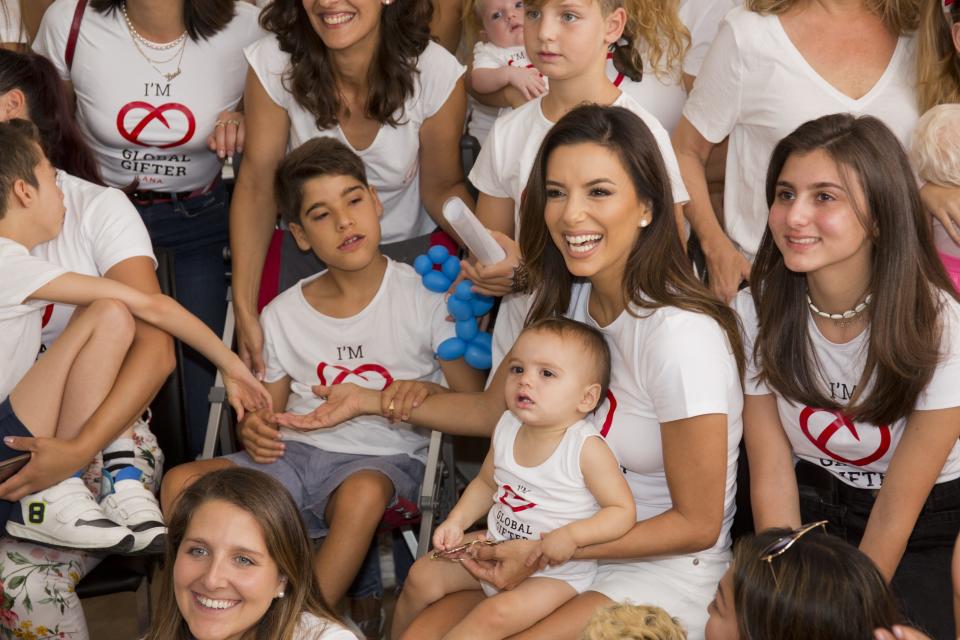
How do you overcome adversity?
Adversity is a given. We will always have adversity in life. I don't live life being risk-averse, I lean into it because that usually means you're doing something important.
I have such an optimistic view of everything, of the world, of people, and when I go into any challenge with that mentality of, "We’re going to figure it out," instead of that doomsday mentality, then you usually figure it out. If it doesn't work out, because it doesn't always work out, I have the firm belief that that was for a reason, because I need to take a left turn. This door closed so this window could open, and it's always proven right in my life.
What has motherhood taught you?
People go, "Since you had a son, it must be so hard." And since having my son, life's been so easy because he's such a priority in my life that it's easier to say "no" to things, whereas before I was the center of my universe and I was like, "Oh, I got to do that, I can't miss that opportunity. I've got to do it all." Now the bar is so high, if it takes me away from my son, if it moves me to another country, if it takes up all of my time, it has to be worth it. The qualifications for a "yes" are much harder and I'm much more focused on what I want to do.
He teaches me patience, going with the flow and meeting him where he's at. He's 5, and we always talk about if he's having a tantrum, or if he's having a big emotion, you have to meet kids where they're at and understand they're only operating from their current consciousness. I take that with me everywhere.
What advice would you give your younger self?
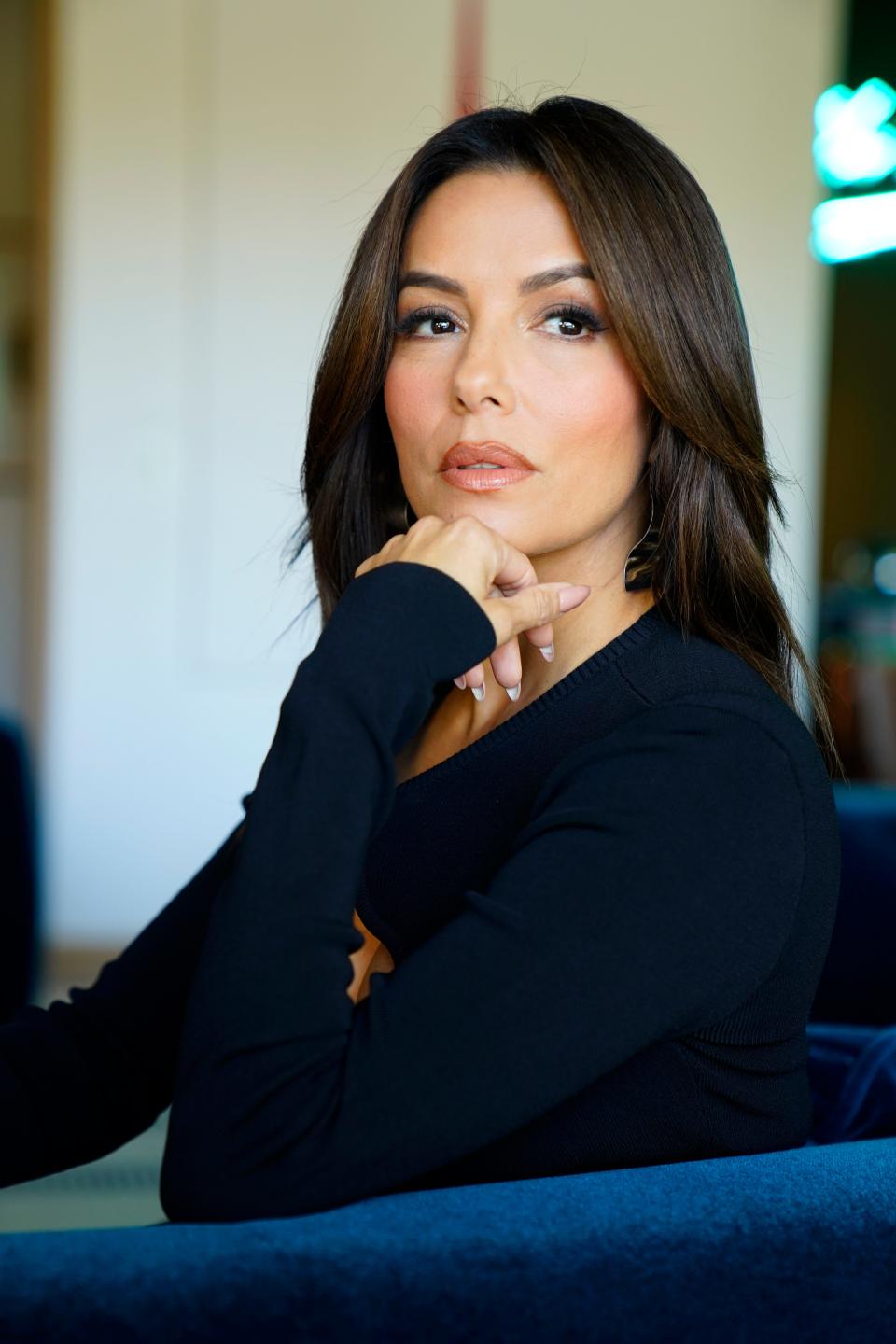
My younger self would be very proud of me now. I was a much braver younger self. My 14-, 15-year-old Eva was brave and the world was her oyster, and I still feel that way. I still feel like my greatest accomplishments are ahead of me. I don't feel like, "Oh, I did that show back then, that was a huge hit. I did this movie that was great." I feel like I can't wait to see what's next.
I would just probably say, "Fasten your seatbelt because it's going to be a great ride."
Why is it important for you to open the door for Latinas breaking into Hollywood?
My favorite rooms to be in are with fellow Latinas and aspiring Latina artists – whether they're directors, writers or actors. A big reason I got behind the camera to product and direct was to build this pipeline of talent that doesn’t normally get the opportunities.
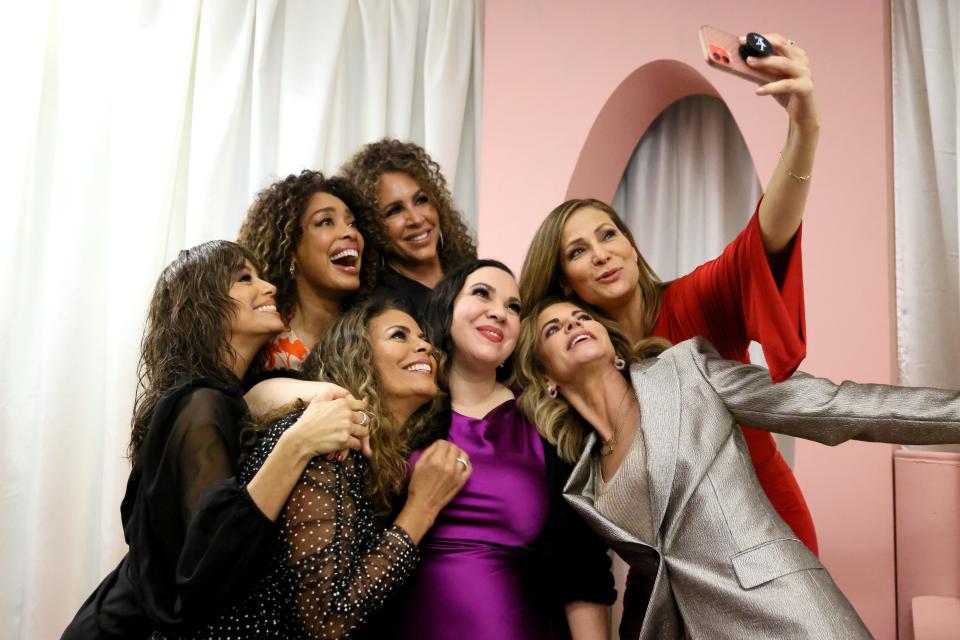
Even me, getting "Flamin' Hot" was a very hard job to get because I didn’t have the body of work to prove I could do the job and I couldn't get the job because I didn't have the body of work. We all go through that challenge, we know we can do it. We know we haven’t done it, but we can do it. So that’s the one obstacle I want to remove for them. I’m going to give you the chance to do it, I want to give you the opportunity to shine.
This article originally appeared on USA TODAY: Eva Longoria on directing, motherhood, opening doors for Latina actors
